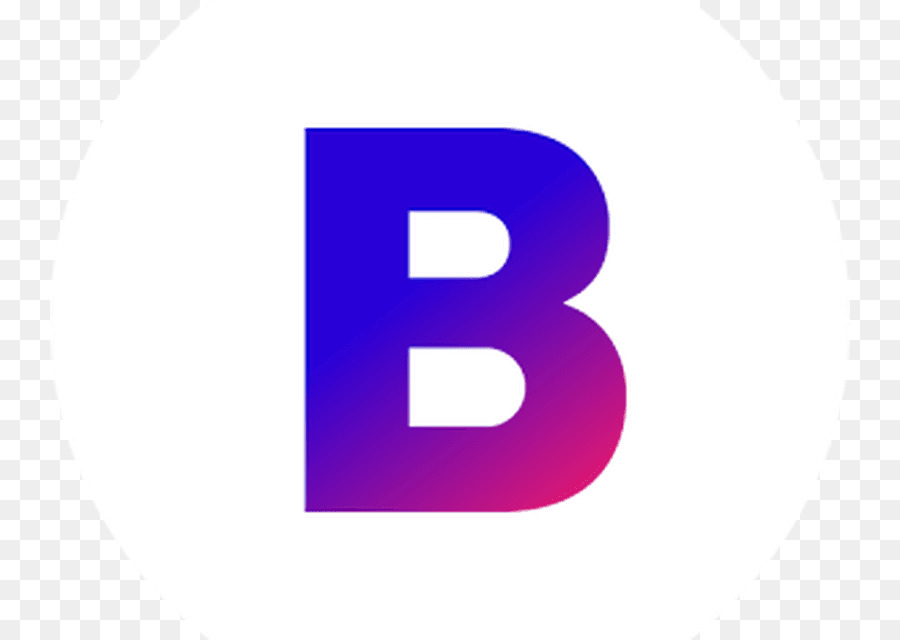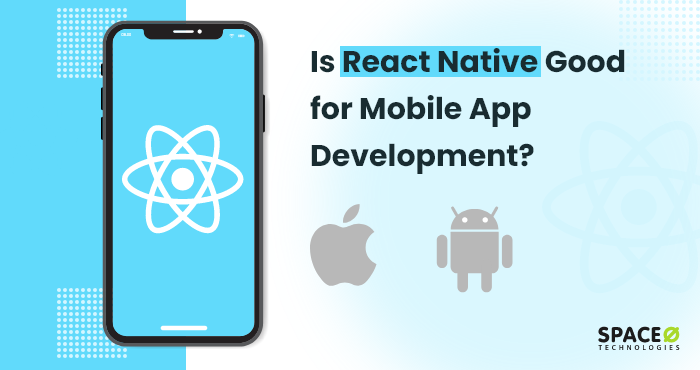By 2025 there will be 7.49 billion mobile users globally for Android and iOS platforms. On average, a mobile user spends 4.8 hours immersed in a mobile app.
How will you reach this diverse audience with your mobile app? Should you develop individual apps for the platforms or go multi-platform with your app strategy?
Owing to a large user base and stiff market competition, you cannot take the native app development approach for your next idea.
With the multi-platform approach comes the most important question – which framework will help you achieve your goals? 38% of mobile app developers prefer React Native app development to meet their cross-platform application requirements.
Being a React Native app development company, we have in–depth knowledge of React Native development. Even our experienced React Native developers utlise frameworks to build apps effortlessly and push in features that enrich your mobile application development.
In this article, we will take you through the top reasons and answer this question, is React Native good for mobile app development?
Table of Contents
15 Reasons to Choose React Native to Develop Mobile Apps
The features of React Native, and the inherent abilities make it the perfect framework for cross platform app development.
Multi-platform Framework
Is React used for mobile app development? The fact is the mobile app development tools and third-party plugins in this framework help create mobile apps for Android and iOS platforms. In native app development approach, you had to develop multiple codebases specific to the platform. For example, you needed Swift developers to build your iOS code.
- You need a React Native developer who can write logic using the React Native libraries. Once done, you can use the code across platforms (iOS, Android, Windows and others).
- In case you already have a web application that uses ReactJS, you can readily convert it into a mobile app by reusing the state management and component logic.
- This saves time and resource hiring efforts, while ensuring a seamless mobile app development process using React Native.
Example Explanation Facebook Mobile App This was the first app to introduce the React Native framework. As Facebook is used by mobile users across platforms, it became important for the company to create a lightweight and intuitive interface. React Native helped them accelerate the development and release the application on both platforms. Familiarity with Programming Language
You are on familiar grounds when building a mobile app with React Native. The UI library is built using JavaScript and React. So, if you are familiar with these two, your learning curve is smaller.
According to Statista, the most demanded programming language is JavaScript. More than 47% of recruiters across the globe are searching for programmers with skills in JavaScript, Java, and Python. The following image shows the top programming languages recruiters prefer for developers.
Apart from JavaScript, there are multiple benefits of learning React Native as well.
- Unlike Xamarin or Flutter which comes with learning a new programming language, React Native is built on your existing knowledge. As a result, the low learning curve acts as a benefit for the developer.
- You get started with your project faster than you had anticipated.
- Having knowledge of React Native and Native mobile apps is an added advantage here. As you already know the syntax and coding methods, you tend to reduce average app development time by 90% with this framework.
Reusable Codes for Fast Development
React Native mobile app development is akin to arranging lego blocks one over the other to get the right pattern. You create components, and reuse them as needed to build the interface elements.
Example Explanation Skype on React Native The buttons are all similar. However, React Native developers didn’t need to develop separate codes for the buttons for every page; they could use the same block to define the button. Similarly, when calling a page to the fore, the same block is repeated, making it easier for the front-end developers to build uniformity. It also makes the page appear faster.
- You can write the code once, and share it everywhere
- You can build component blocks and reuse them across the app
- If the web app is ready, you can use the components to build the mobile app
As a result, this improves the efficiency of the developer and leads to faster time-to-market for the business.
Native-like Experience
When you are an iPhone user, you know how interfaces are built. Intuitive for iPhone differs from its meaning on Android. However, when you develop cross-platform mobile apps, they look and feel similar.
This may cause slight friction on individual platforms. However, with React Native as your framework, you can avoid this friction and make way for better experiences. As you can develop native apps like apps in hybrid platforms. Learn more about native app vs hybrid app.
- The React Native framework is built using real, native UI elements that are rendered for native views.
- This makes you feel like the app follows the design guidelines for the individual platform.
Example Explanation Instagram When you use Instagram on iPhone versus Android, you can see the differences clearly. The app has adapted the design guidelines for the specific platform, making it experiential for the users using React Native. Live Reloading
A feature launch can take a lot of time, especially if you are expected to make changes. Why?
- You have launched a new feature. Your audience believes there is scope for improvement
- After incorporating the changes, you go live with the application; the audience asks for revisions leading to increased deployment time of the app
Some guidelines to follow while performing live reloading.
- You don’t need to update the entire feature with the hot reloading feature available with React Native.
- Directly make the necessary change to the part of the feature where it is required, while your application is live.
- Once changed, immediately test the application changes in the live environment. As a result, it helps accelerate the development and iterations.
This works well for startups where app owners experience time constraints. You need to be up and about with the revisions as soon as possible. React Native’s reloading feature allows you to get the headstart needed.
Access to Developers and Skills
As React Native uses the JavaScript library, it is easy to find developers with proficiency and knowledge of the framework. As the learning curve is low and there are people with this background, it becomes easy for app owners to find the right people with these skills and proficiencies.
Accessibility is one of the major reasons to opt for this platform. The platform may not be completely mature but it offers the right backing needed to get started.
Have an App Idea?
Get in touch with us. We have a team of experienced mobile app developers who can help to develop a secure and featureful mobile app for your business.

Excellent Support from the Community
One of the top reasons to choose the React Native framework is the extensive community backing. The platform is gaining popularity, which is why you will be rescued from all issues that can possibly occur when developing the mobile app.
For example, say you are building an Instagram clone, and you are adding features from the basic app. It is possible you may not realize how to implement the API or plugin. The developer community support can be your savior in this case.
As React Native is developed by Facebook, you will notice that the community is already big and accepting. Apart from that, you also have plenty of open-source contributors who can help with development.
Develop Stable Apps
The React Native apps are developed using the simplified binding strategy within the codebase. But, you need to understand the detailed steps of how to create an app to save time and increase productivity.
Also, if you want to complete updates or make changes, you need to modify the state of the object. As a result, you will be able to deliver a more stable app for business needs.
A stable app is very important, especially when you are planning the solution for multiple platforms.
This level of stability can help with mobile app development from scratch. It also works when you want to develop updates or features for existing app solutions.
As React Native uses native APIs for rendering applications, it also improves performance.
Enriched User Interface
React Native uses declarative syntax, which means you can write the code while the framework takes care of execution. The frontend UI library is built using pre-built declarative components that make designing the interface easy and intuitive.
Tech giants like Facebook, Instagram, and Microsoft Office utilize React Native to develop scalable products for their business.
But, how can you utilize React Native?
- Create your own components with React Native framework using tools such as TouchableNativeFeedback and TouchableOpacity.
- Have operating system-specific tools that make it easy for you to create the specific UI components for a responsive user interface.
Extends a Positive Developer Experience
Developers have great freedom working with React Native framework. Here are the reasons why developers prefer mobile app development with React Native.
- You can learn while working on a mobile application.
- You don’t need to be proficient with native languages; yet, they can create applications for the native platforms.
- You can learn one layout engine and process the application development for both iOS and Android.
- You don’t need to restart the development; you can publish the changes and updates in the live environment.
- It makes the development experience positive and enhances the development.
Works for Two Ecosystems
The React Native framework supports two of the most significant ecosystems present at the moment.
- iOS
- Android
As a result, you don’t need to create separate apps for iOS and Android platforms.
You can leverage hybrid app development using the framework, and release your apps into the ecosystem faster. This gives you a competitive advantage against budding startups.
Develop Complex and Advanced Applications
It is possible for developers to launch complex and advanced app solutions using React Native framework. They can easily work on simplifying the codes and the interface to launch the applications faster.
As the framework works with a component-based interface, you can plug-n-play the interface elements and create advanced applications. The framework breaks down your complex algorithms into simplified formats, thus making it easy for the developers.
Works for Low Budgets
As React Native is open-source and offers cross-platform compatibility, you can develop an app for multiple platforms with the budget for one. This is how you can work for low budgets.
- This simplifies the app development process and ensures quicker releases.
- You save on hiring and infrastructure costs as well.
- You won’t need to invest in separate tools, devices, and developers for the iOS and Android platforms.
High Quality Applications
React Native, owing to a stable framework and libraries created offers excellent quality and high-speed mobile app solutions. The framework is designed to offer coding power and interface components that are responsive and interactive, thus enhancing the experiences.
As the applications boast of native-like experience, it becomes easy to derive the experience you want and enhance the outcome with this framework, apart from React, there are other top mobile app development frameworks to apply.
Support from 3rd Party Tools
It extends support to third-party APIs and plugins. As a result, if there is something missing in the framework, you can easily integrate the necessary plugin and add the feature. This makes it easy to incorporate the essential features and ensure all the necessary components are in place to make the UI interactive and engaging.
The next section comprises the best examples of React Native applications.
Which are the Best Examples of React Native Apps?
We have discussed the reasons to choose React Native. The following table consists of top examples of React Native app.
| Apps | Features | Reviews (Google Play Store) |
|---|---|---|
 |
| 4 137,942,102 Reviews |
| 3.1 129,157,770 Reviews | |
 |
| 4.6 92K Reviews |
 Bloomberg |
| 4.4 4550 Reviews |
 Shopify |
| 4.1 23,067 Reviews |
 Vogue |
| 4.2 186 Reviews |
 Wix |
| 4.2 32,991 Reviews |
What are the Benefits of Using React Native for App Development?
Let’s take a look at the top benefits of building a mobile app with React Native for your next business app.
Faster Development Cycles
- With React Native as your framework, you have the chance to launch your app to market faster.
- The pre-built components and reusable code allows you to build the interface faster as compared to the other frameworks.
- You can create the logic once and share it among the different platforms.
- As a result, your app is ready for multiple platforms, thus giving you a chance to release across iOs and Android instantly.
Lowered App Development Costs
React to React Native
Active Updates
Open Source Framework
Saves Time and Efforts
Let’s take the example of a startup planning to launch its app product to the market. A delay would mean their competition is all set to grab the market, and leave limited to no opportunities for the startup.
When you are developing for multiple platforms simultaneously, you might end up spending a lot of money. However, that is not the case when you develop your app with React Native. As an open-source framework, React Native app development cost is lower as it provides an ecosystem of open-source libraries.
By choosing React Native, you are opting for a single developer, streamlined development and testing process, and fully functional apps well within your budget. However, if your app complexity increases, it directly affects the React Native app development cost.
The supporting technology stack largely depends on your budget, the expertise you need and the features you plan to add to the application.
As the hiring costs and efforts are reduced, therefore, however you should know the cost of app development and develop an app with minimal cost. Additionally, leveraging ReactJS consulting services can further optimize your development process.
Want to Know the Cost of App Development?
Talk to us. Share your app requirements with our app development consultants and get a custom quote according to your needs.
Know how to convert iOS app to Android easily with React Native. If your open-source platform for the web is ReactJS, your native app developers are well aware of how to make the transition.
You can use the same native components and work on the mobile app development project. Things are simpler in this case, as React Native UI library uses most of the React web components.
React Native is a growing framework, and you can see how the community works towards improving mobile app development. The company as well as the community is involved in improving the framework to foster innovation.
The community is ensuring a solution for all problems faced by the developers when building mobile applications. If there is no immediate solution available, the update will surely include one in a few months.
The current React Native version 0.69 was delivered with the help of the massive community of mobile and web developers.
As React Native is open source, you have complete access to the source code. You can begin customizing the application from scratch to meet your unique business requirements and goals.
Apart from this, the version releases happen faster as compared to regular frameworks. As a result, you will get an updated version of REact Native within months of talking about a potential problem.
Each version of React Native makes the framework stable and more in sync with the requirements of your business.
When you develop cross-platform apps using React Native, you create a single codebase that uses the native modules. The development process is smooth and as swift as possible.
You can publish the app on multiple app stores once it is ready. As a result, the developer need not spend a lot of time or effort in coding for separate platforms.
It also means you don’t need to hire two different developers; a single React Native developer will help you with getting the app deployed to the marketplace.
Eventually, your developer’s productivity increases, as they can work on multiple things at a time, and ensure a better outcome. Lastly, hiring dedicated developers also help innovate the app solutions for better performance.
Still have questions related to mobile app development using React Native? Go through the following FAQ section to receive all the answers.
FAQs of React Native Development
What is the future of React Native developers?
React Native is not going anywhere anytime soon. It will continue giving a stiff competition to the other cross-platform development frameworks including Flutter. It works using the JavaScript library, which makes it essentially a powerful development framework.
In what language React Native is written?
React Native is built on JavaScript programming language. It works with React and other JavaScript libraries.
Ready to Develop Your App Using React App?
In this article, we went in-depth with React Native, a popular cross-platform app development JavaScript framework. It is majorly used for mobile app development owing to the low learning curve and open-source nature. Apart from that, the single codebase enables the developers to develop mobile apps faster and launch them to the respective application store.
Mobile app development is a transformed niche; it no longer relies on the idea alone. You need high-end processes, a planned path, and defined interface elements before getting started. If you fail at the planning stage, expect a failed application that doesn’t translate into downloads.
Space-O Technologies has extensive knowledge and expertise in mobile app development. If you are looking to convert existing native applications or build new cross-platform apps from scratch with React Native, we can help you. Connect with our team by filling out the form, and our developers will get back to you at the earliest.




